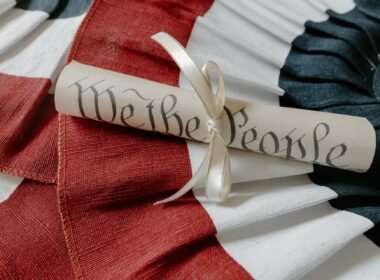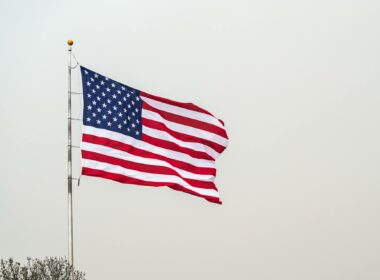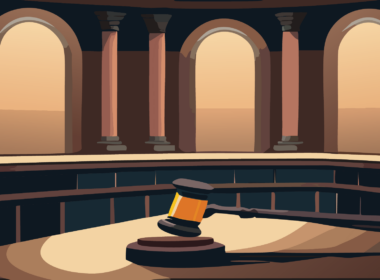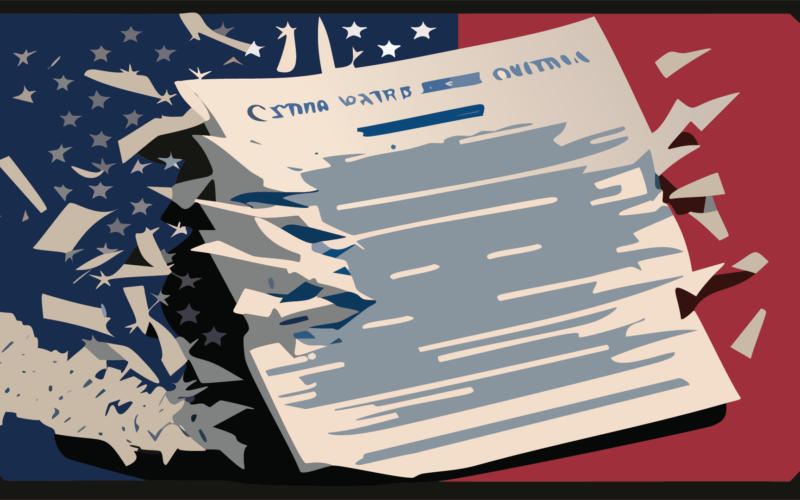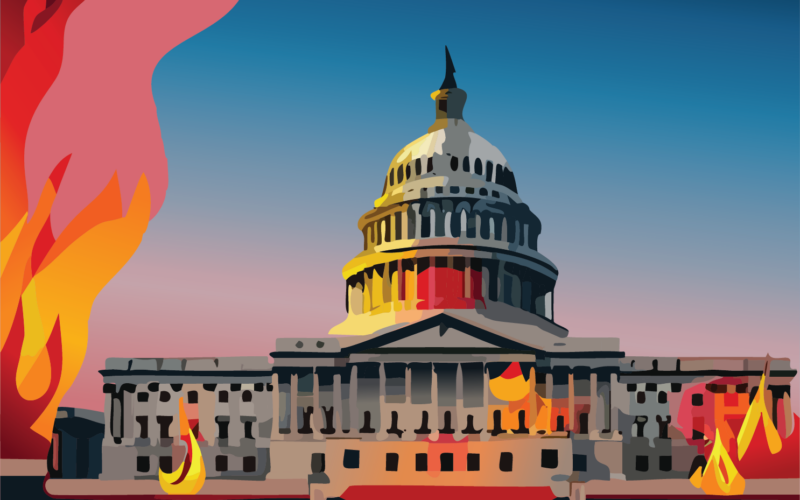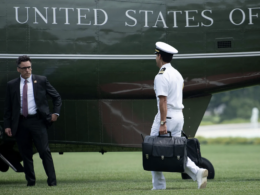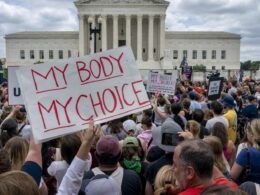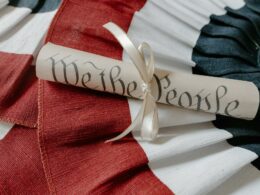“We never thought it would happen to us.”
January, 1933. After leading the Nazi party for 12 years, Adolf Hitler is appointed Chancellor of Germany.
For most of its life before this crucial event, the Nazi party spent a majority of its time and messaging railing against big business and capitalists.
However, at the start of the 1930s, the Nazi party’s messaging began to change. No longer were they overly focused on being anti-big business or anti-capitalist—they had found a new calling.
Originating from a predecessor paramilitary culture—the Völkisch nationalism Freikorps—the first incarnation of the Nazi party was created to draw people from communism to a more Germany-focused nationalist ideology. It spent a considerable amount of time on the fringes, rarely gaining much support among Germans.
All of this changed when the world was gripped by the Great Depression and the global economy was ravaged. Germany’s living standards plummeted and unemployment skyrocketed. People wanted answers, they wanted solutions, and the party offering them abruptly began appealing to Germans who were increasingly moving towards political extremism.
The first signs of problems came quickly.
On the 27th of February, 1933, the Reichstag parliamentary building caught fire. Adolf Hitler, only having been sworn in as Chancellor of Germany four weeks prior, quickly blamed the attack on communist agitators who he claimed were part of a larger effort to overthrow the German government.
Under the guise of protecting the government, Adolf Hitler convinced then-President of the Weimar Republic, Paul von Hindenburg, to enact the Reichstag Fire Decree, which largely did away with civil rights of German citizens such as the right to speak, assemble, protest, and due process.
Using the Reichstag Fire Decree as a legal basis, Adolf Hitler and the Nazi party swiftly cleared the government of deemed political enemies, and the media was quickly censored. Under the new authority of the decree, the party declared a national state of emergency and began a violent crackdown on any remaining dissenters whom were quickly imprisoned, or worse.
This was only the beginning.
The Enabling Act of 1933
“We’ve been duped, and it’s too late.”
Despite the Reichstag Fire Decree laying the groundwork for a thorough cleansing of Germany’s government, and citizen dissenters against the Nazi party now in jail, Adolf Hitler and the Nazi party insisted that it was not enough.
And so, on the 23rd of March, 1933, Germany came to pass into law an act officially titled Gesetz zur Behebung der Not von Volk und Reich (lit. Law to Remedy the Distress of People and Reich), more commonly known as the Enabling Act of 1933.
Decreed in this act was the new power of Germany’s Cabinet to create and enforce laws without the involvement of the Reichstag, Germany’s lower house of parliament. Most importantly, however, the Enabling Act of 1933 gave supreme legislative authority to then-Germany’s recently created new position: Chancellor.
Despite what the Reichstag Fire Decree empowered Adolf Hitler and the Nazi party to do, the passing of the Enabling Act of 1933 was never a guarantee.
To ensure its passing, the Nazi party cunningly orchestrated an overarching operation to coalesce support for the act by uniting disparate groups of conservative and nationalist Germans through bribery, manipulation, and coercion, ultimately gaining their signatory support.
On March 5th, 1933, the disparate groups collectively defeated the Social Democrats in Germany’s general election, effectively setting the board for the Enabling Act to become law on March 23rd, 1933.
Adolf Hitler had become a legal king.
Members of Germany’s conservative elite—only in hindsight having realized the Nazi party’s true intentions—had been duped, and it was too late to go back. They had been stripped of all their power; they now had no choice but to go along.
Hell Came Next
“And then they came for us.”
Even before the Enabling Act of 1933 officially became law, the Nazi party was already hard at work establishing the first concentration camp: Dachau.
Opened on March 22nd, 1933, Adolf Hitler and the Nazi party would begin sending communists, social democrats, labor union leaders, and other political enemies here. A few months later, the Nazi party would be the only legally permitted political party in Germany.
During the following months, Adolf Hitler and the Nazi party continued to amass and centralize power in the Cabinet; the Reichstag—all but neutered—had now been reduced to a rubber stamp checkbox. With enough Nazi party members in high-ranking positions, purges soon followed in 1934 intended to clean the Nazi party and the government of any remaining non-loyalists, today known as the Night of the Long Knives.
Adolf Hitler and the Nazi party’s takeover of Germany was now finally complete.
They would go on to commit the most heinous acts of genocide the world had ever seen, ultimately culminating in World War II, and the destruction of a majority of Europe.
✦ ✦ ✦
January 6th, 2021
“There’s never been a movement like this, ever, ever.”
On a chilly morning in Washington DC, ninety-one years after the events in Germany, then-President Donald Trump, addressing a crowd of his supporters, continued to deny the validity of the recently concluded U.S. presidential election. As he stood there, likening his loss to vast swaths of fraud and corruption, a more nefarious gathering was brewing.
Convinced that the U.S. presidential election had been rigged, disparate groups of conservatives and nationalists began to hatch a plot: In order to get the outcome they believed was justified, and to supposedly save the nation, these groups came together to lead a violent and deadly attack on the U.S. Capitol in an effort to stop the transfer of presidential power.
For months previous to the events of January 6th, then-President Donald Trump, joined by a cacophony of characters, kept pushing the conspiracy theory that the 2020 election was massively rigged and corrupt. Voter fraud, they claimed, was the only possible explanation for a Trump loss, and the media was complicit by covering it up.
The government, they insisted, was on the verge of confirming an illegitimate president.
Spurred by multiple dog whistle calls to action, the group descended on the Capitol, smashing windows and entrances, and barreling past police officers. Thousands of people clamored about, defacing offices and threatening officials.
Hundreds of miles away from the violence, in various contentious states, others hatched a different plot that was far less violent, but no less dangerous.
Should there be a victory in Washington DC, and the certification of the election results was postponed or reversed by then-Vice President Mike Pence, slates of fake electors would submit fraudulent certificates affirming that Trump had in fact won their states, and thus should be justly certified as the winner and president.
With the reversal or nullification in Washington DC, then-Vice President Mike Pence could formally proceed to accept the fraudulent electors’ certificates, effectively keeping then-President Donald Trump in power.
Ultimately, both of these plots failed, but the events of January 6th, 2021, set the board for a much quieter revolution.
Shaken Foundations
“This was an attack on democracy itself.”
Reeling from the immediate aftermath of the January 6th insurrection, a bruised nation opened its recently acquired black eye. What we saw was shocking: five people dead; elected officials fearing for their lives; the Capitol building defaced.
The United States had just come shockingly close to a hostile takeover and the potential rise of authoritarian rule. Quickly setting about, the nation embarked on a quest to unravel just how January 6th was penned, orchestrated, and ultimately, carried out.
What we found was appalling, but not without precedent: Individuals with fringe political ideologies, sharing many of the same sentiments that gave rise to the original incarnation of the Nazi party, had come together to orchestrate the attack that day.
Determined to hold those responsible for the January 6th insurrection accountable, the United States pursued vast investigations to locate and bring to justice the perpetrators. Throughout these years-long investigations, one thing became clear: Though the violence of that day was heinous, it was the fake elector scheme that posed the most significant danger to the republic.
Within the Executive Branch, then-President Donald Trump, together with officials from the Republican party in seven states, and other associates, had devised the plot to subvert the election using fake electors and fraudulent certificates of ascertainment.
The implications were truly staggering.
Never before had a sitting president, using the powers of the Presidential Office of the United States, been implicated in such a plot, or had in such an overtly manner broken the laws of the United States.
On August 1st, 2023, about four months shy of the third anniversary of the events of January 6th, now-former President Trump was indicted by a federal grand jury for conspiracy to defraud the United States, conspiracy against rights, obstructing an official proceeding, and conspiracy to obstruct an official proceeding.
Trump denied all charges and vowed to vigorously fight the case, which quickly began working its way through the courts. That is, until now-former President Trump and his legal team made a novel argument: That the president was immune from federal criminal prosecution for acts taken while in office.
Logically, this argument was subsequently eviscerated by both the trial judge, and an appeals court afterwards, though as expected, now-former President Trump’s legal team appealed these decisions to the Supreme Court, which agreed to take the case.
The board was now fully set.
The first moves came quickly, with both sides making their arguments before the Supreme Court: On one hand, the principle that nobody is above the law in this nation; on the other, that presidents are above the law and cannot be held criminally liable for their official actions in office.
As the days turned to weeks, and the weeks turned to months—silence. Cases before other courts slumbered. The American people nervously waiting for an answer. On the morning of July 1st, 2024, that answer finally arrived.
Former and future presidents had become legal kings.
✦ ✦ ✦
The Thirteen Colonies; 1765
“No taxation without representation.”
March 22nd, 1765. As the British Parliament finalized the Royal ascent of the Stamp Act, many in the Thirteen Colonies had a feeling of déjà vu.
The previous year, in September of 1764, the Sugar Act had gone into commencement, and a new tax on molasses was to be imposed of three pence per gallon. Thirty-one years before the Sugar Act, the British Parliament had instituted the Molasses Act, which decreed that molasses would be taxed at six pence, however, it had proven difficult for the British to enforce and effectively collect tax revenue.
The new Sugar Act would change all of that.
Despite the colonies being highly opposed to British taxation, the Sugar Act went into effect largely without opposition, with only a few reports of sporadic violence in some parts of the Colonies.
By March, 1765, the apathy had turned, and the colonies began viewing the British Parliament’s intentions with increasing wariness. Even though the Stamp Act largely only now required that printed goods be printed on officially stamped paper from London, there were two provisions within the Stamp Act that caught major scrutiny.
The first provision stipulated that courts exercising ecclesiastic jurisdiction must also use stamped paper.
On the face of it, it might seem quite harmless, but at the time of its passing, the Colonies had no such courts. Furthermore, as many of the colonists who had fled England had done so to escape such state-sponsored religious institutions, many felt this to be an indication that the British Parliament meant to re-institute the ways of old.
A second provision within the Stamp Act was largely seen as a way for the British Parliament to usurp the courts away from the Colonies, and into the control of England.
Inevitably, the Stamp Act proved to be highly unpopular, rejected by colonists and only partially implemented, its introduction sparked street protests from Boston to Charleston. It was during these protests that would give rise to a new group of colonists: The Sons of Liberty.
What began as loose groups of colonists eventually became a highly-organized, inter-colonial group spanning from New York to Georgia; and even though the Sons of Liberty claimed that they were loyal to both the Crown, and the Colonies—and continued to maintain both loyalties throughout the Stamp Act crisis—their activities and ability to organize provided a blueprint of sorts.
Britain didn’t know it yet, but the events that transpired during the Stamp Act crisis ultimately sparked the American Revolution.
We The People
“The unanimous Declaration of the thirteen united States of America.”
July 2nd, 1776. Ten years after the Stamp Act crisis, at the gathering of the Second Continental Congress, the Colonies had had enough. By unanimous declaration, the Thirteen Colonies came together as one, and declared their independence from England. By July 4th, the Declaration of Independence had been ratified.
The United States of America was officially born.
England, already having declared the Thirteen Colonies as being in a state of rebellion since August of 1775—further compounded by having been pushed out of Boston in March of 1776—knew that the Declaration of Independence set the stakes for the war.
In realizing this, England quickly escalated the fighting, and the primary theaters of the American Revolutionary War would play out over the following years, ending with the signing of the Treaty of Paris, whereby the United States was formally recognized as an independent nation.
For eight long years, until September 3rd, 1783, the colonists had fought to free themselves from the monarchy—and they had won.
Internally, before the end of the war and the signing of the Treaty of Paris, the colonists knew they needed a form of government. The administrative boards and appellate courts created during the early stages of the Revolutionary War no longer sufficed. The Thirteen Colonies needed a proper government.
Introduced in 1777, and ratified by the First Continental Congress in 1781, the Articles of Confederation would be the colonists first attempt. The articles provided for a Congress of the Confederation, which by design, imposed heavy restrictions on the powers granted to this body. Naturally, many Americans felt that having a central government with too much power would be all too similar to the British monarchy.
It was a mess.
Disputes between the states quickly erupted on just how powerful the new central government should be. Additionally, the Congress of the Confederation had no economic authority, and as such, it was unable to pay debts, ultimately leading to economic decline. Western settlement was planned, but nobody could agree on how it should be carried out. As these issues began piling up, the anger between the states culminated with an armed uprising known as Shay’s Rebellion in 1786—after an earlier armed mutiny by Continental soldiers in Pennsylvania had already occurred in 1783.
Something had to be done.
In an attempt to address the economic disputes of the states, the Annapolis Convention was held, though most states failed to send a delegate. This was the final straw. Delegates from New Jersey would come to submit a proposal for a convention to reorganize the government entirely. This proposal would lead to the Constitution of the United States.
Found within, the new nation would outline their vision for a government free from the kings of past. It would set forth the separation of powers, how those powers related to the states, and eventually, the Bill of Rights.
At long last: We the people.
✦ ✦ ✦
July 1st, 2024
“With fear for our democracy, I dissent.”
Under the roof of a building, incised in stone with the words Equal Justice Under Law, the Supreme Court of the United States would issue a ruling that would shake the foundations of this nation.
Presidents, they ruled, bear a cloak of immunity for any official actions.
Under the Constitution of the United States, the Executive Branch is charged with the more well-known powers vested in the president: command of the armed forces; responsible for making treaties with other nations; acts as the head of state on the international stage; veto or approve legislation passed by Congress.
However, another power vested in the Executive Branch is the enforcement of federal laws written by Congress, which by extension means running the day-to-day operations of hundreds of federal government agencies and departments tasked with doing just that.
The heads of these agencies are appointed by the Executive Branch—specifically, by the President of the United States and their Cabinet.
In addition to the cloak of immunity, the Supreme Court also specifically laid out in their majority opinion that communications between the president, and heads of these agencies and departments, could not be used as evidence against the president in a court of law.
This is precisely what the colonists fought so hard against: A government who’s leader is insulated from the reach of the people. The colonists—and by extension the Framers—always feared a central government that would resemble the British monarchy and they went to great lengths to ensure it would be difficult to establish one, going so far as prohibiting the federal government from issuing titles of nobility.
In ruling for the insulation that immunity grants, the Supreme Court of the United States not only violated the morals and guiding principles of this nation, they also degraded and defiled the achievements of the men we call today our Founding Fathers.
The Constitution of the United States makes the Framer’s convictions very clear:
Judgment in Cases of Impeachment shall not extend further than to removal from Office, and disqualification to hold and enjoy any Office of honor, Trust or Profit under the United States: but the Party convicted shall nevertheless be liable and subject to Indictment, Trial, Judgment and Punishment, according to Law.
—Constitution of the United States; Article I, Clause 7
In short: If a position or office of the United States of America is impeachable under the Constitution, and the impeached party is convicted by Congress, then by extension, the occupier of that office is also subject to indictment, trial, judgement, and punishment, according to the laws of the United States.
What’s important here—and it is very lustful to focus on the word convicted—is that the Framers clearly did not preclude any office of the United States from criminal proceedings and punishments. What they said here is that a political conviction by impeachment does not equate to a criminal conviction by the courts under the laws of this nation.
The Constitution of the United States, in no uncertain terms, does not in any way grant complete criminal immunity to the president, even for their official acts.
If that were the Framer’s intent, they would have plainly done so in the same way they provided immunity to Congress in Article I, Section 6, Clause 1 of the Constitution, more commonly known as the Speech or Debate Clause.
What the Supreme Court justices have done is a bastardization of the events that took place in Germany in 1933: Insulate the top-most post in the land, allow the occupier of that office—and their Cabinet—to operate beyond legal recourse, and take away the power of the people to hold them accountable by inventing the power of immunity.
Now, let me be very clear: We will not be seeing death squads roaming the streets like the Gestapo. The Navy’s Seal Team 6 would not execute an American citizen simply because the president said so—they are fully permitted to deny an unlawful order and they swear fealty to the Constitution and the United States, not the president or the office.
A president themselves couldn’t actually murder someone in Times Square and get away clean.
Nevertheless, impeachment is only a political recourse; its sole purpose is to remove and prevent unfit individuals from retaining their offices, or seeking other offices of the United States. The only other presumed deterrent preventing anybody occupying the Office of the President of the United States from abusing its power has effectively been obliterated.
A cunning president, one careful enough to act only within the law (or lack thereof) and the Constitution, carefully orchestrating official actions in pursuit of self-interest or corruption only through officially protected channels of communication, or vicariously through the various heads of agencies and departments of the United States—a president that doesn’t speak on these actions publicly—that is what worries me.
The President of the United States may not have the power to order a military execution of a political enemy, but the FBI certainly has the authority to detain individuals under pretext of criminal conduct. The IRS might just seize your assets if you happen to be with the opposition. There are countless less dramatic scenarios than a political execution by the Navy, and it is worrisome.
It worries me because the people can no longer pierce through the veil of the Executive Branch by anything other than accident or incompetence; it should worry every American.
For if that is the case, and this ruling stands, then we are no longer a nation of laws, but of men. For it will be the man (or woman) in that office who will drive its character and actions.
Now, more than ever, its is crucially vital that the American people choose leaders not based on novelties like age, charm or appeal, or personal gripes and vendettas, but of what these men and women say, of the actions they take and how they treat others, of how best they embody the core ideals of this nation—lest you someday find yourselves like Germany’s conservative elite: Duped, and no way to go back.
